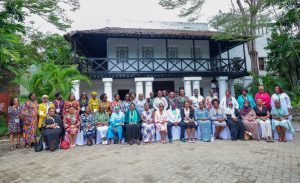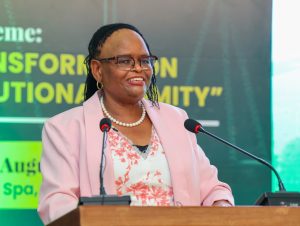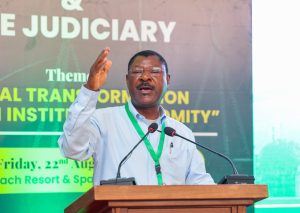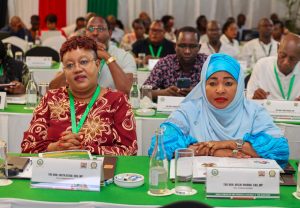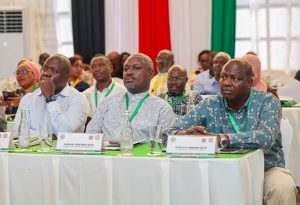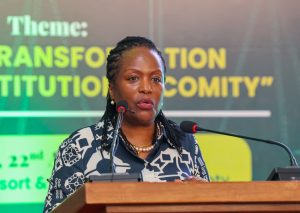Joint Forum of The Judiciary And The National Assembly
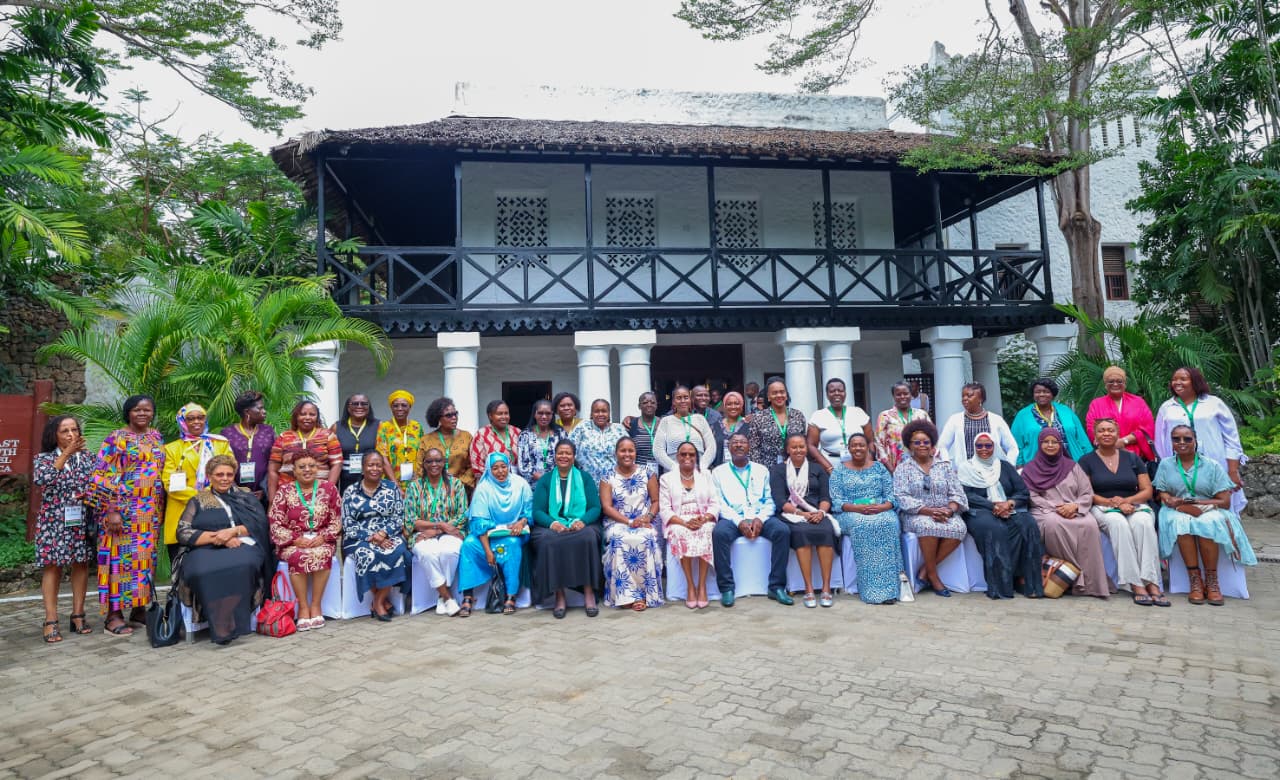
The Judiciary and the National Assembly convened in Mombasa on Friday, 22nd August 2025, for a landmark Joint Forum under the theme “Social Transformation through Institutional Comity.” The Forum brought together leaders of the two Arms of government, senior State officers, and experts to reflect on the constitutional relationship between Parliament and the Judiciary, and to chart pathways for strengthening Kenya’s democracy and governance through collaborative constitutionalism between the two State Organs.
The Forum was officially opened by Hon. Justice Martha Koome, EGH, Chief Justice and President of the Supreme Court of Kenya, and Rt. Hon. (Dr.) Moses Wetang’ula,EGH, MP, Speaker of the National Assembly. A keynote address on “Parliamentary Privilege and Judicial Oversight: A Delicate Interplay” was delivered by Hon. Dr. Patrick Matibini, SC, former Speaker of the National Assembly of Zambia and retired Judge of the High Court.
Key Deliberations and Outcomes
- ?Balancing Parliamentary Privilege and Judicial Oversight – The Forum emphasised that parliamentary privilege and judicial oversight are not adversarial but complementary pillars of constitutional democracy. Both safeguard constitutionalism and ensure accountability. The Judiciary has consistently exercised restraint in intervening in ongoing parliamentary processes, while affirming that judicial review remains essential to ensure that such processes align with the Constitution. Striking this balance will deepen democracy and safeguard the sovereignty of the people.
- ?Mutual Respect and Collaboration – The National Assembly and the Judiciary reaffirmed their commitment to uphold the doctrine of separation of powers while fostering constructive interdependence as envisioned in Article 6 of the Constitution. They agreed to establish a Collaborative and Consultative Forum to sustain engagement on matters of national interest, grounded in mutual respect and the public good
- ?Strengthening Training and Knowledge Exchange – The Forum recognised that continuous learning and knowledge exchange are vital to nurturing constitutionalism and good governance. In this regard, the Kenya Judiciary Academy and the Centre for Parliamentary Studies and Training will establish structured collaboration to advance professional growth within both institutions. Judges will serve as resource persons in parliamentary staff training, while retired Members of Parliament and senior parliamentary staff will contribute their wealth of experience as faculty in judicial training programmes. These initiatives, together with joint academic and intellectual exchanges, will deepen mutual understanding of the roles and responsibilities of each arm of government, foster institutional respect, and strengthen the collective capacity to serve the Kenyan people.
- Access to Justice – The Forum underscored the importance of expanding the judicial footprint across all constituencies through strengthened court infrastructure and enhanced human resource These measures will significantly reduce the distance travelled by court users and ensure that justice is accessible to all Kenyans, regardless of location. In addition, the Forum reaffirmed its commitment to promoting Alternative Justice Systems (AJS) and mediation as vital mechanisms to empower communities to resolve disputes at the local level. By encouraging dialogue and reconciliation, these systems will help foster peace, cohesion, and social stability. The National Council on the Administration of Justice (NCAJ) will continue to play a central coordinating role in advancing justice sector reforms, with a particular focus on strengthening the criminal justice system.
- ?Security and Digital Protection – The Forum recognised the need to strengthen the Judiciary Police Unit by aligning its command-and-control structures for efficiency. It also called for enhanced protection of Parliament and the Judiciary from emerging cyber threats. In particular, the Forum highlighted cyberbullying and misinformation targeting judges and judicial officers as a growing threat to judicial independence and public trust. Investments in digital security infrastructure will be prioritised.
- Budgetary Support and Judicial Independence – The Forum reaffirmed that adequate and principled financing of the Judiciary is essential to safeguard constitutionalism and guarantee equal access to justice. It was agreed that budgetary allocation should be guided by measurable indicators of judicial workload rather than arbitrary ceilings, with priority given to establishing Magistrates’ Courts in all constituencies and sustaining the Judiciary’s digital transformation. The Judiciary Fund will continue to be strengthened and fully operationalised as a vital safeguard of judicial
- Legislative Priorities – The Forum resolved to prioritise the consideration and enactment of critical legislation affecting the administration of justice, including: the Judiciary Academy Bill, 2025 and The Tribunals Bill, 2023, which lapsed after Cabinet approval, to be reintroduced in the National Assembly. The National Assembly will also explore a legal framework to protect judges and judicial officers from cyberbullying, safeguarding their independence and
- Conclusion – This historic Joint Forum reaffirmed the commitment of both the Judiciary and the National Assembly to the constitutional ideals of the sovereignty of the people, the supremacy of the Constitution, and the rule of law. Through constructive dialogue and cooperation, both arms of government pledged to strengthen Kenya’s governance, expand access to justice, and secure the democratic future of the nation.




